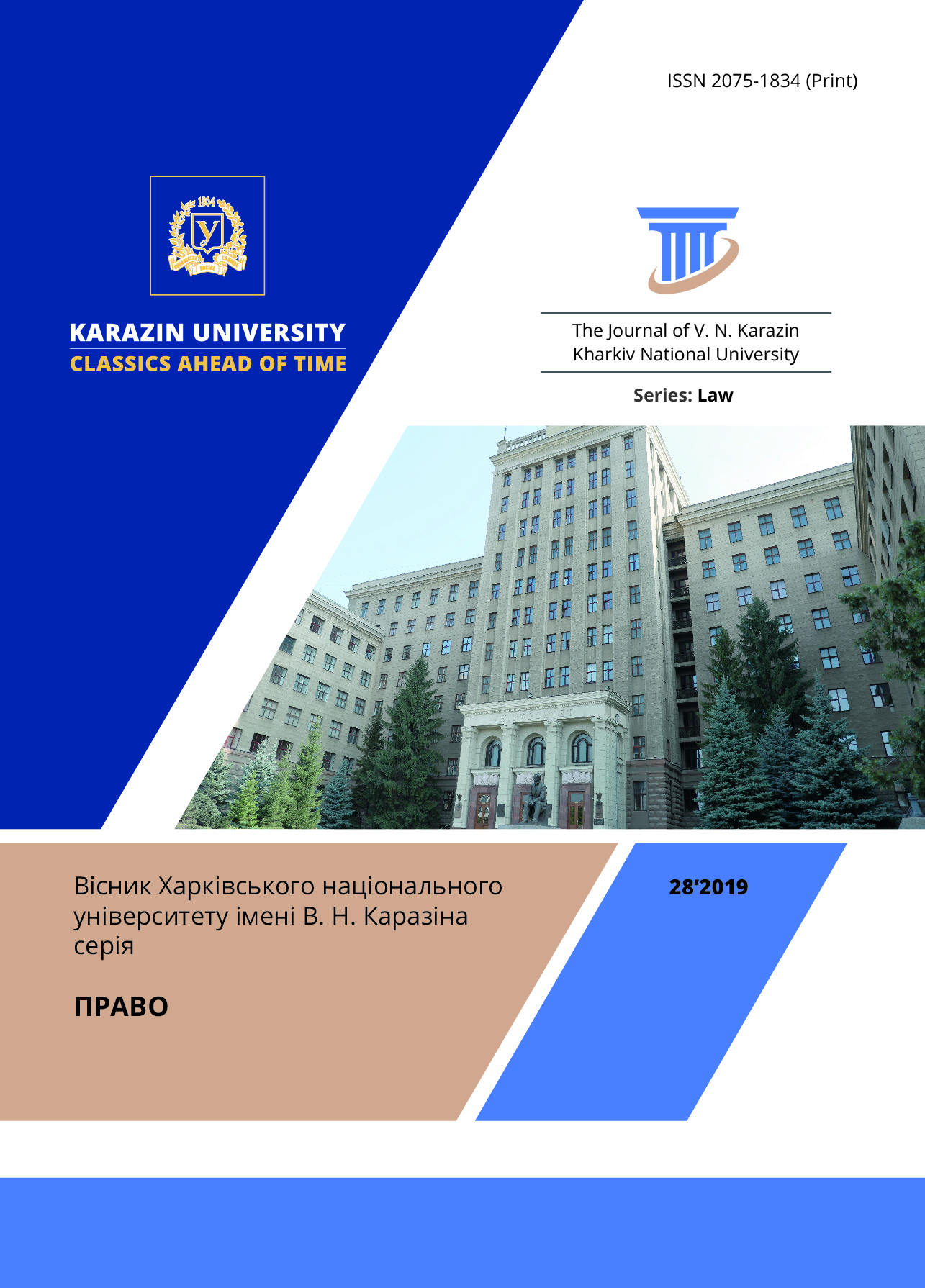SEKUNDARNI POSITION OF CONSENSUAL PROCEEDINGS
Abstract
The article discusses the situation of civil law and consensus in the criminal process for not serious crimes. The essence of consensual proceedings in the criminal process is determined, its procedural form is disclosed, which includes the agreement of the parties and the grounds for closing the criminal proceedings both at the stage of pre-trial investigation and court proceedings. Considering the division of the right to public and private, on the basis of the consensual provisions of the criminal process, it is necessary to indicate that they have different substances and are divided according to different classification criteria.
Based on the general and theoretical provisions of the criminal process, the consensual developments of this work, we can determine that public and private law has two directions, which include the theory of interest and the theory of protection of private interests. In this case, we can talk about the material and formal signs of theoretical modifications, namely, to proceed from the content of regulated relations, which should be based on material conditions. That is, if the norms of public law regulate the interests of a person, then they are built on the material theory. How they regulate and what they regulate, we attribute to the legal norms.
The conclusion is that in relation to the construction of legal relations between the subjects of the process, this question can be put on the basis of the content of the subjective right. The criminal process has the authority to interfere with the norms of public law in the private interests of the person, if provided for by criminal law. We believe that the criminal procedure law should take measures to limit the interference of public law in private interests.
Based on the analysis of civil procedural legislation, recommendations were given on drafting an agreement in the criminal procedure in the procedural form on compensation for material damage.
Downloads
References
ВормсА. Вексельные бланки/ Сборник статей по гражданскому и торговому праву. Памяти профессора Габриэля Феликсовича Шершеневича.М., 2005. С. 605.
Избранные труды по гражданскому праву: в 2 т. / М. М. Агарков ; МГУ, Каф. гражданского права юридического факультета. — М.: Статут, 2012. — (Классика российской цивилистики): Т. 2: Общее учение об обязательствах и его отдельных видах. — 2012. — 533 с.
Толстой B.C. Реализация правоотношений и концепция объекта //Советское государство и право, 1974, №1. С. 122-126.
Алексеев Н.С. Очерк развития науки советского уголовного процесса. /Алексеев Н.С., Даев В. Г., Кокарев Л.Д. – Воронеж.: ВГУ. 1980. – 168 с.
Алексеев С.С. Теория права. / Алексеев С.С. -М.: Норма. 1995. - 388 с.
Захаров Ю. Право требования кредитора в договорах в пользу третьего лица / Ю. Захаров, Ю. Фогельсон // Хоз-во и право. – 2001. – № 10. – С. 22–23.
Алексеев А. А. Юридические конструкции – ключевое звено права / А. А. Алексеев // Цивилист. записки : межвуз. сб. науч. тр. – М., 2002. – С. 13–14.
Сидельников Р. Право на самозащиту как «секундарное право» / Р. Сидельников // Підприємництво, госп-во і право. – 2005. – № 6. – С. 44.
Бабаев А. Б. Проблема секундарных прав в российской цивилистике : автореф. … канд. юрид. наук / А. Б. Бабаев. – М., 2006. – С. 9.
Богатырев Ф. О. Секундарное право на примере постановления Президиума Верховного Суда России / Ф. О. Богатырев // Журн. рос. права. – 2005. – № 2. – С. 68–72
Кримінальний процесуальний кодекс України від 13.04.2012 р. № 4651-УІ // Відомості Верховної Ради України. - 2013, №9-10, №11-12, №13, ст. 88.
Постанова Пленуму Верховного Суду України № 14 від 23 груд. 2005 р. «Про практику застосування судами України законодавства у справах про деякі злочини проти безпеки дорожнього руху та експлуатації транспорту, а також про адміністративні правопорушення на транспорті» (зі змінами, внесеними постановою Пленуму Верховного ОСОБА_8 України № 18 від 19 груд. 2008 р.) Електронний ресурс. – Режим доступу: http://zakon5.rada.gov.ua/laws/show/v0014700-05
Кримінальний кодекс України: Кодекс України, Кодекс, Закон від 05.04.2001 № 2341-III // Відомості Верховної Ради України (ВВР), 2001, № 25-26, ст. 131.
Copyright (c) 2019 Дмитрий Сергійович Слинько

This work is licensed under a Creative Commons Attribution 4.0 International License.




